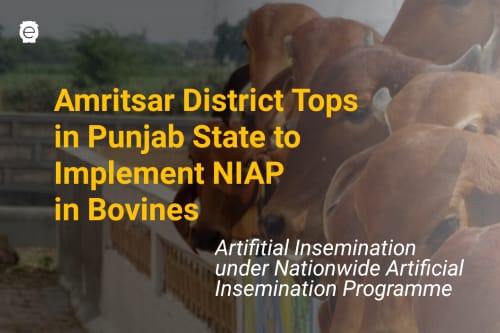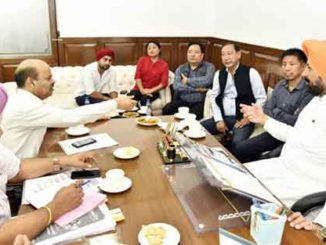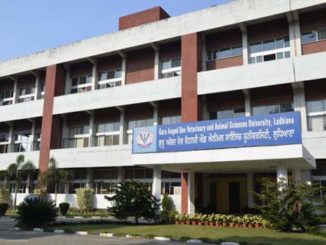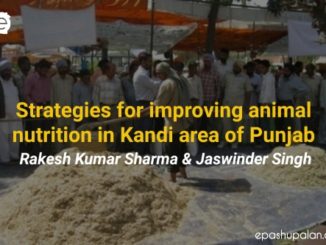Amritsar has gained 1st position in Punjab state out of 22 Districts of state and stands at 30th rank amongst 600 districts of all the states in India in Nationwide Artificial Insemination Programme (NAIP) under Rashtriya Gokul Mission (RGM) of Govt of India run by Punjab State. District official gave credit for this achievement to the able leadership of Hon’ble Minister of Animal Husbandry and Fisheries, Dairy Development- S. Tripat Rajinder Singh Bajwa and guidance of Principal Secretary Animal Husbandry-S Jaspal Singh IAS and Director AH- Dr Inderjit Singh.

The programme of free AI under NAIP was inaugurated by Prime Minister of India on 11th September 2019 in the country with the objectives of providing reliable AI delivery system and Adoption of AI technology by large number of farmers in districts with less than 50% AI coverage leading to birth of genetically superior calves, increasing milk production, avoiding incidence of zoonotic diseases and hence increasing the farmers income. In Punjab the programme took off on 6th November, 2019. After selection and mapping of villages in Amritsar, necessary training of Artificial Insemination Technicians (AIT’s) about INAPH and NADRS software and overall monitoring of project is being conducted by Dr. Harmanpreet Singh, District Nodal Officer NAIP. As Amritsar started its work in Dec, 2019 and inspite of late start, it gained top position in Punjab.
Every district in the above programme needed to select 100 villages in the start which was increased to 300 villages in Jan 2020. Every district was allotted AI target of covering minimum 20,000 bovine animals. Amritsar has done 27,106 free AI’s covering about 20898 animals as per the INAPH data and till date all of these entries have been uploaded on NADRS software of NIC, Delhi.
All the animals covered under the programme are being identified and ear-tagged with ‘PashuAadhaar’ which is a 12 Digit unique identification provided to the animals so as to enable the Government to identify and track the animals uniquely with all details such as the owner details, breed, age, gender and insemination details with bull ID. Every cow and buffalo tagged under programme can be tracked through the Information Network on Animal Productivity and Health (INAPH) Database developed by National Dairy Development Board, Anand, Gujrat. This INAPH software records the AI details, pregnancy status and calving followup of the covered animal. Apart from INAPH, NADRS application developed by NIC for Government of India for all the states is used to upload the data which is reviewed by the Higher Authorities of Punjab and Central Government.
When contacted Dr. Pawan Kumar Malhotra, Deputy Director Animal Husbandry Amritsar said that all the achievements of Amritsar have been possible due to the hard work of Senior Veterinary Officers, District and Tehsil Nodal Officers of NAIP, all AITs in the field esp Dr Prabhdeep Singh, Dr Amarpreet Singh Pannu, Dr Vishal Marriya, VI Lovepreet Singh and VI Gurlal Singh. He also emphasized that only way to increase the genetic potential of animals is to bring more and more animals under Artificial Insemination with superior semen of elite bulls. In this way state will be able to bring improvement in breeds thereby ensuring increase in the milk production and farmers income.






Be the first to comment